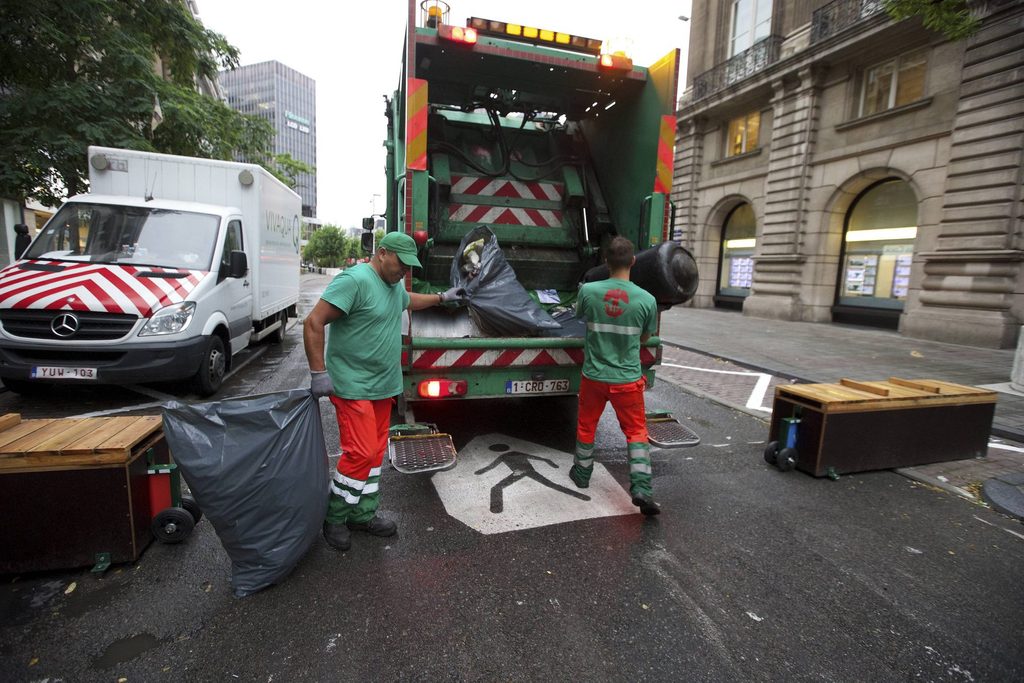Despite ongoing efforts to reduce the waste in Belgium's capital region, 9,238 tonnes of refuse was collected in 2022 – down from 10,921 tonnes in 2019.
As a new waste collection calendar comes into effect in Brussels (which includes an enforced system of orange bags for organic waste), Public Cleanliness Councillor Zoubida Jellab (Écolo) nonetheless heralded the 1,700-tonne reduction in waste as evidence of better sorting efforts.
Jellab cited improved campaigns for the collection of bulky waste, such as unwanted furniture, and pointed to the growing popularity of rubbish sorting. In the past years, the region removed 400 public rubbish bins from mostly residential areas because they were being filled with household waste.
"People now do more sorting,” Jellab said. “During bulky waste campaigns, we also do more sorting.” In addition, the Public Service for Social Welfare (CPAS) recovers some of the furniture and refurbishes it for resale. The charitable association Les Petits Riens collects clothes.
Getting tough on trash offenders
Not everything is a success story: a significant part of the rubbish collected is illegally dumped. Jellab said that the region is turning to cameras overseen by a private company to catch offenders: "Since 2021, we have caught 4,500 people. For clandestine deposits, the fine is 500 euros per m³. In total, 6,000 people were fined in 2022."
In autumn, fallen leaves were a large part of the waste collected by cleaning agents. On this front, mesh containers are being installed for local composting: “We used to pick up dead leaves to burn them. Now, residents can deposit leaves in the containers and we take care of the composting.”
Related News
- Wallonia starts works to fix its landfill 'time bomb'
- How a circular economy would lead to EU energy savings
- New waste-sorting model for the capital's metro stations
It remains to be seen whether the new collection changes will reduce the tonnes of non-recyclable waste collected by the region. The reform will be evaluated in June but already has come under fire from political opponents that criticise the once-weekly collections. But the Environment Ministry remains hopeful that the initiative will reduce residual waste by enforcing the use of the orange bag.
Residual, non-recyclable waste usually ends up being incinerated. While waste incineration makes up nearly half of the region's "renewable" energy, the process is actually harmful to the environment and public health.
At the European level, Belgium generates some of the highest quantities of municipal waste per capita, according to 2021 Eurostat data. In 2021, Belgian municipal waste rose to 759 kg per capita, nearly double 2006 figures and surpassed only by Denmark, Luxembourg and Austria.

